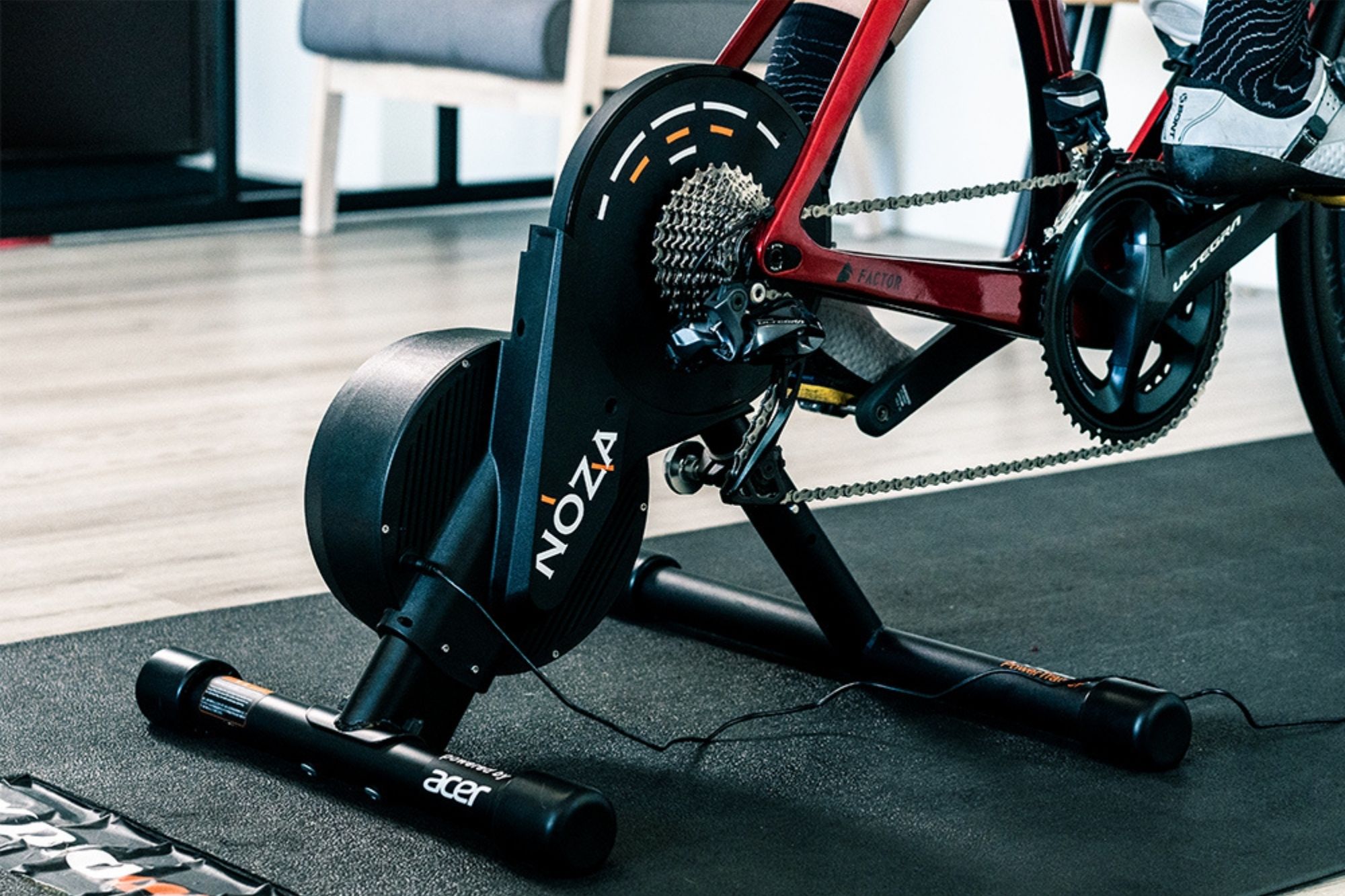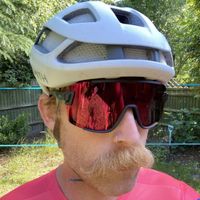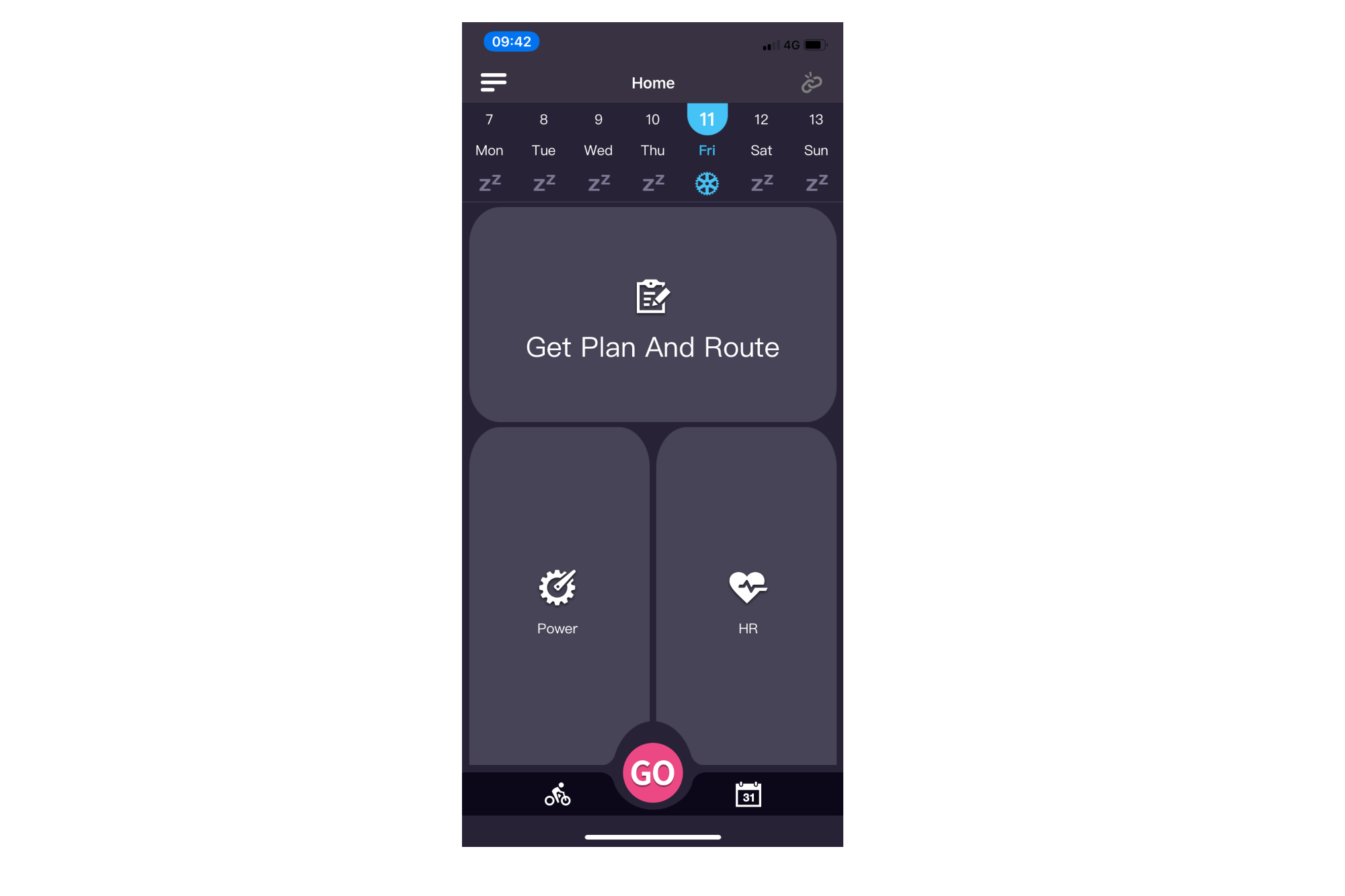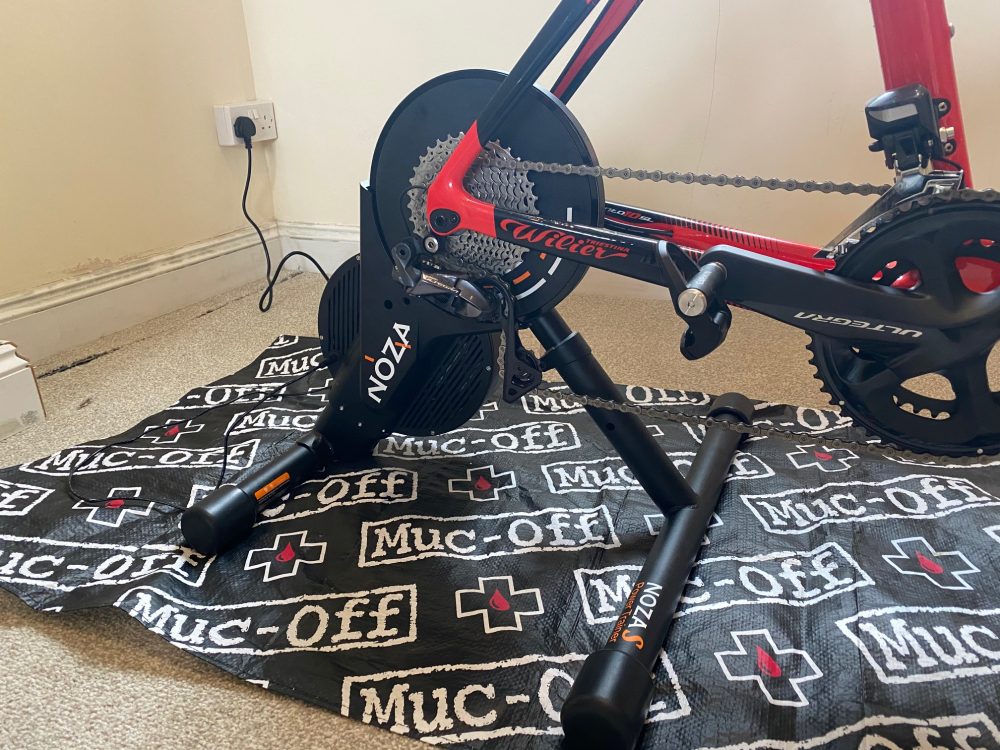Xplova Noza S Smart Trainer review
Acer powered smart trainer packs in plenty of enviable features

The Noza S is a trainer that offers a lot of benefits for the average cyclist. It's quiet, stable, powerful and offers a really easy to use interface that can get you riding quickly. Unfortunately for the more dedicated indoor cyclist the discrepancies in power readings will be enough to put you off if you intend to use it as a dedicated workout session machine.
-
+
Quiet
-
+
More than enough resistance for any rider
-
+
Simple to use app
-
+
Stable
-
-
Power over reads far more than the claimed 2.5%
-
-
Connection to third party apps and devices can be slow/intermittent
-
-
Easy to lose bolt-thru axle adapter
You can trust Cycling Weekly.

The Noza S is Xplova's full function smart trainer and sits in the very competitive mid-price market so is up against some established players.
Out of the box and the setup is a simple matter of attaching the two stabilising legs via a push button for the height adjustable front and two bolts for the wider rear. There are adapters for running standard 135mm quick release or two bolt through axle widths, covering both road and mountain bike compatibility. The only thing to note here is the non-driveside adapter has a tendency to fall out when taking the bike off the trainer. It is also compatible with all main wheel sizes.
The best indoor trainers for cycling
As with almost all direct drive trainers you will need to source a suitable cassette to enable it to work with your bike - something you need to factor in when it comes to the overall cost. At this point it's important to note that currently Xplova only produce a standard Shimano/SRAM compatible freehub - Campagnolo, SRAM XDR and Shimano Microspline users need look elsewhere.
In terms of the smart trainer arms race the Xplova Noza S looks to have all bases pretty much covered. It has a claimed 2500 watt maximum resistance/power output, the ability to simulate up to an 18% incline, a power accuracy of +/- 2.5% and a 5.9kg flywheel. Compare those Top Trump stats to its main rivals, the Wahoo Kickr Core, Elite Drivo and the Tacx Flux S and it bests the Tacx and Wahoo in all barring the Kickr's power accuracy. The Elite still sits at the top with a wider incline simulation range, heavier flywheel and more accurate power measurement.
In terms of computing power and connectivity, the Xplova has the power of computing giant Acer behind it and of course it can connect to a variety of devices and third party apps via Bluetooth Smart and ANT+. There's also a neat Xplova app that for once is actually pretty user friendly. My turbo needed a firmware update before I could use it (so it's now on the latest 1.134 version) but then when connected the app provides instant real time data. You can use it to connect to your TrainingPeaks account to download workouts to follow or it will allow you to replay GPX routes from Strava or Xplova's other cycle computer apps as sessions. It also has sessions loaded as standard based on power or heart rate to use including FTP (both 8 min and 5+20 min tests) and peak power tests.

Start using the Noza S and first thing that strikes you is how quiet it runs. Even putting in sprint efforts the loudest it registered on my decibel meter was 56Db. I think my breathing was louder and it was noticeably quieter than even the drivetrain. It's also incredibly stable. Yes, it does weigh north of 17 kilograms and yes it is a pig to move around but it coped with my 75kg frame wildly trying to smash out intervals. So on both noise and stability it performs excellently and would be ideal for someone living in a flat.
The latest race content, interviews, features, reviews and expert buying guides, direct to your inbox!
The ride feel is similar to many direct drive style trainers and the Noza S delivers a smooth spin up and run on. It's not life-like but then what trainer is? The heavy flywheel certainly helps in this respect. Connect to the Xplova app and you can adjust the level of resistance according to wattage via ERG mode or adjust slope to deliver simple workouts. Adjustments are felt instantly and are fairly consistent.
Connect to Zwift and the Noza S delivers the all important real time reaction to the terrain. There were a couple of times where it failed to deliver instant changes, especially on rolling circuits but it certainly delivered an acceptable ride almost on par with its rivals.

I compared the Noza S to my set of Garmin Vector 3 pedals in order to compare power numbers and here is where the Nova S started to unravel. At lower power levels (sub 200 watts) the Noza S delivered fairly similar numbers to the Garmin pedals (both calibrated and zeroed before riding) but the Noza S consistently over read by around 4% - a little outside the +/- 2.5% claimed. Push harder, especially on short sprint efforts and the variance grew wider. At times the difference grew to nearly 10%. This would cause real issues if you were undergoing performance testing or trying to work to specific power zones as you would either consistently be over performing or under training dependent upon the circumstance. The cynical part of me also thinks that it could also work in your favour when it comes to Zwift racing.
James Bracey's career has seen him move from geography teacher, to MBR writer, to Cycling Weekly's senior tech writer and video presenter. He possesses an in-depth knowledge of bicycle mechanics, as well as bike fit and coaching qualifications. Bracey enjoys all manner of cycling, from road to gravel and mountain biking.
